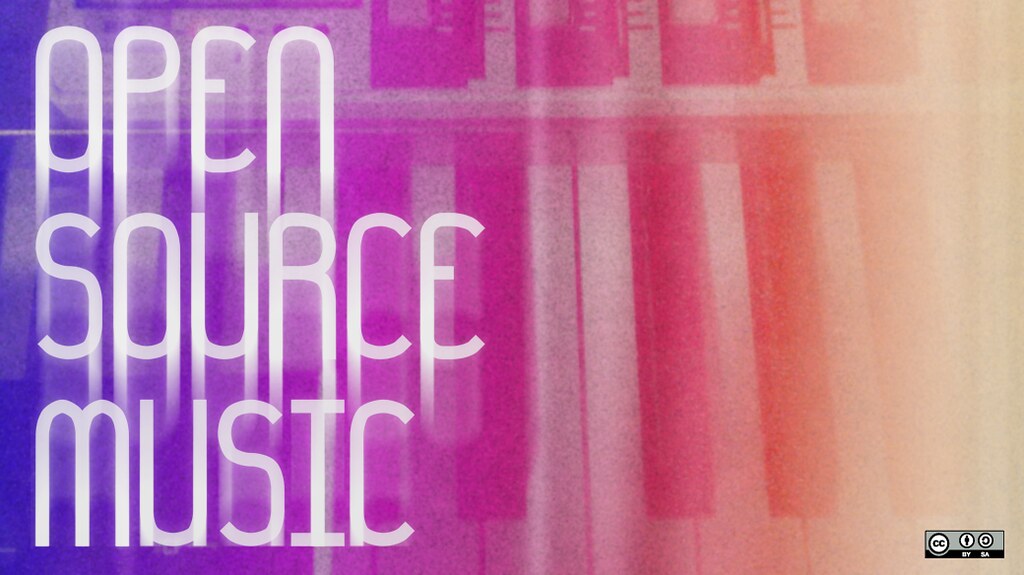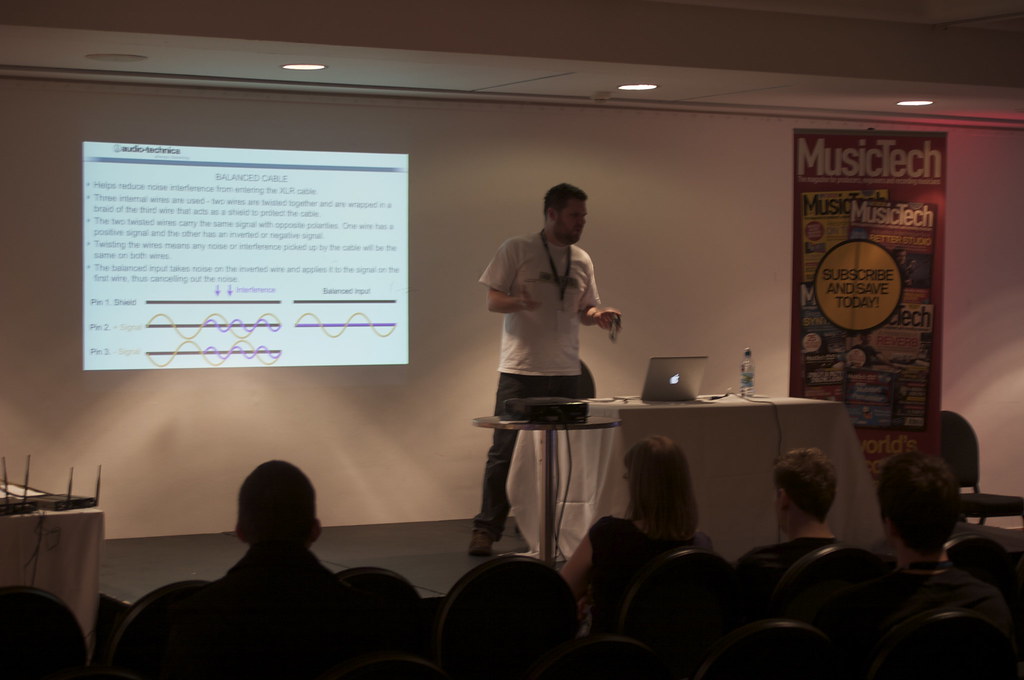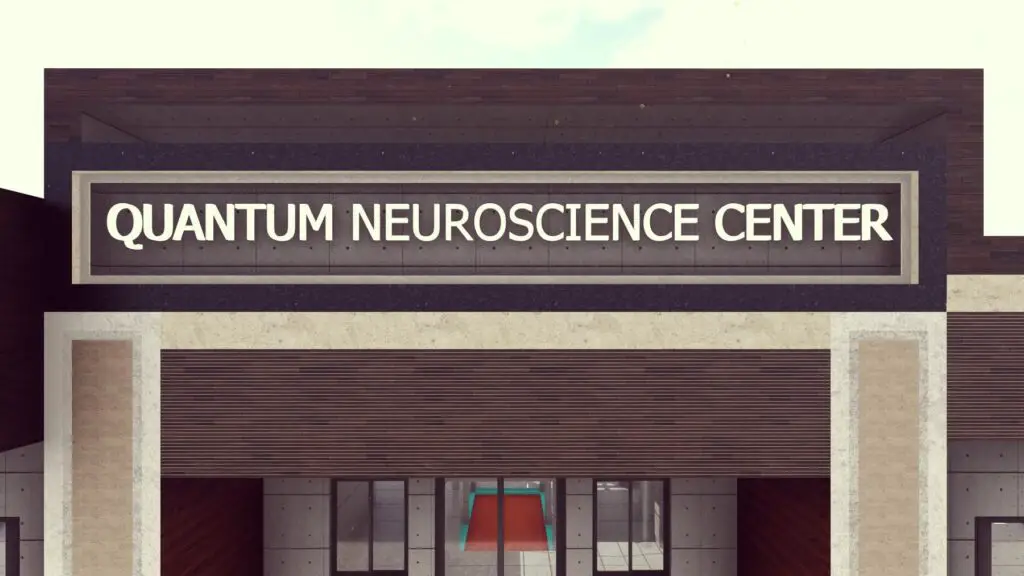Are you interested in pursuing a career in music production? Look no further than music production education. In this article, we’ll provide an in-depth look at music production education, including what it is, its importance, and the best resources available to help you get started. Whether you’re just starting out or looking to advance your skills, read on to learn everything you need to know about music production education.
Table of Contents

What is Music Production Education?
Music production education is the process of acquiring the technical and creative skills necessary to create music. This can be achieved through formal education, such as attending music production schools or through self-education with online courses and tutorials. Formal education provides a structured learning environment and access to industry professionals, while self-education offers flexibility and the ability to learn at your own pace.
The Importance of Formal Education in Music Production
Formal education in music production provides a strong foundation in music theory, technical skills, and creative techniques. It enables students to learn from experienced professionals and gain access to state-of-the-art equipment and software. Formal education also provides students with the opportunity to network with industry professionals and build relationships that can help them in their careers.
The Benefits of Self-Education in Music Production
Self-education in music production provides the flexibility to learn at one’s own pace and on one’s own schedule. It also allows students to focus on specific areas of music production that interest them the most. With the abundance of online courses and tutorials available, self-education in music production has become more accessible than ever before. Self-education can also be more affordable than formal education, making it an excellent option for those on a budget.
Choosing the Right Education Path
Choosing the right education path for music production depends on individual goals, needs, and preferences. Formal education may be best for those who value a structured learning environment, access to industry professionals, and the opportunity to network with peers. Self-education may be best for those who prefer a more flexible and personalized learning experience. Regardless of the path chosen, dedication, hard work, and a passion for music production are essential for success.
Pros and Cons of Formal Music Production Education
Formal music production education is an excellent way to gain a strong foundation in music theory, technical skills, and access to industry professionals and state-of-the-art equipment. However, it can also be expensive and time-consuming, and may not be necessary for everyone. Here are some pros and cons to consider when deciding whether or not to pursue formal music production education:
Pros
Structured Learning Environment
Formal music production education provides a structured learning environment that allows you to develop a solid foundation in music theory, audio engineering, and digital audio workstation software. This structure provides a clear path to follow and helps you stay on track towards your goals.
Access to Industry Professionals
Formal music production education often provides access to industry professionals who can offer guidance, advice, and networking opportunities. This access can be invaluable in helping you jumpstart your career in the music industry.
State-of-the-Art Equipment and Software
Formal music production education often provides access to state-of-the-art equipment and software that may not be available outside of a formal education setting. This access allows you to experiment with different tools and technologies and gain hands-on experience with industry-standard equipment.
Networking Opportunities
Formal music production education provides excellent networking opportunities with fellow students, professors, and industry professionals. These opportunities can lead to collaborations, job offers, and industry connections that can help boost your career.
Cons
Expensive Tuition and Fees
Formal music production education can be expensive, especially when pursuing a degree program. Tuition and fees can add up quickly, leaving many aspiring music producers with a significant debt burden.
Time-Consuming
Formal music production education can be time-consuming, requiring several years of study to complete a degree program. This time commitment can be challenging for those who need to work or have other commitments outside of school.
Limited Flexibility
Formal music production education can be inflexible, with courses and schedules set by the institution. This lack of flexibility can make it difficult for those who need to work or have other commitments outside of school.
May Not Be Necessary for Everyone
Formal music production education may not be necessary for everyone, especially those who prefer a more self-guided learning experience. Self-education through online courses, tutorials, and mentorships can be a more flexible and affordable alternative for those who prefer a more personalized learning experience.
In summary, formal music production education can provide valuable skills, networking opportunities, and access to state-of-the-art equipment and software. However, it can be expensive, time-consuming, inflexible, and may not be necessary for everyone. It’s essential to weigh the pros and cons carefully before deciding whether or not to pursue formal music production education.

Music Production Software
Music production software is essential for creating music using your computer. Digital audio workstations (DAWs) are the main software used in music production and provide a platform for recording and editing audio, MIDI, and virtual instruments. Other types of software include virtual instruments and effects plugins.
Overview of Music Production Software
Music production software is designed to help you create music using your computer. It includes digital audio workstations (DAWs), virtual instruments, and effects plugins. DAWs are the main software used in music production, and they provide you with a platform to record and edit audio, MIDI, and virtual instruments. Virtual instruments are software that can be used to emulate real instruments, such as pianos, drums, and guitars. Effects plugins are software tools that can be used to modify and enhance the sound of your recordings, such as reverb, delay, and distortion.
Popular Music Production Software Tools
There are several music production software tools available on the market, each with its unique features and capabilities. Here are some of the most popular music production software tools:
- Ableton Live: This software is known for its real-time performance capabilities and integration with the Ableton Push controller. It is ideal for electronic music production, live performance, and DJing.
- Logic Pro X: This software is designed for use on Mac computers and is known for its advanced audio editing tools and virtual instruments. It is ideal for recording, mixing, and mastering audio.
- Pro Tools: This software is an industry-standard for recording and mixing and is used in many professional studios. It is ideal for audio recording, editing, and mixing for film, television, and music production.
- FL Studio: This software is known for its easy-to-use interface and extensive plugin library. It is ideal for electronic music production and beat making.
- Cubase: This software is known for its advanced MIDI editing tools and virtual instruments. It is ideal for music production, sound design, and film scoring.
Comparison of Music Production Software Tools
When choosing the right music production software for your needs, it’s essential to compare the features, workflow, and user interface of each software tool. Here is a comparison of the most popular music production software tools:
| Software | Price | Platform | Key Features |
|---|---|---|---|
| Ableton Live | $99 – $799 | Windows, Mac | Live performance features, Ableton Push integration |
| Logic Pro X | $199.99 | Mac | Advanced audio editing tools, virtual instruments |
| Pro Tools | $29.99 – $79.99/month | Windows, Mac | Industry-standard software for recording and mixing |
| FL Studio | $99 – $899 | Windows | Easy-to-use interface, extensive plugin library |
| Cubase | $99.99 – $579.99 | Windows, Mac | Advanced MIDI editing tools, virtual instruments |
Choosing the right music production software for your needs comes down to your personal preferences and the type of music you want to create. Consider factors such as ease of use, compatibility with your computer, price, and features when making your decision. Most software tools offer a free trial period, allowing you to test the software before committing to a purchase.

Online Music Production Courses
Online music production courses offer a convenient way to learn music production from the comfort of your home. They offer a flexible learning environment, access to experienced professionals from around the world, and cover a wide range of topics, from music theory to mixing and mastering.
Overview of Online Music Production Courses
Online music production courses provide a structured learning environment that is flexible and accessible. They offer video lectures, assignments, and quizzes to help you learn and improve your music production skills. The courses are self-paced, which means you can complete them at your own pace and on your own schedule.
Popular Online Music Production Courses
There are several popular online music production courses to choose from. Some of the most popular ones include:
-
Berklee Online Music Production Courses: Berklee College of Music offers a range of accredited online courses in music production. The courses are taught by experienced professionals and cover topics such as music theory, audio engineering, and digital audio workstation software.
-
Udemy Music Production Courses: Udemy offers a wide range of online music production courses at an affordable price. The courses cover various topics, from beginner-level to advanced-level, and come with lifetime access to course material.
-
Coursera Music Production Courses: Coursera offers accredited online courses in music production from top universities such as Berklee College of Music and the University of Rochester. The courses cover a range of topics, from music theory to audio engineering.
-
Skillshare Music Production Courses: Skillshare offers a range of online music production courses at an affordable price. The courses are self-paced, which means you can complete them at your own pace and on your own schedule. Skillshare also offers a wide range of other creative courses.
-
Point Blank Online Music Production Courses: Point Blank Music School offers accredited online courses in music production. The courses are taught by experienced professionals and cover topics such as music theory, audio engineering, and digital audio workstation software.
Comparison of Online Music Production Courses
When choosing the right online music production course for your needs, it’s essential to compare the course provider, price, course duration, and key features. Here is a comparison of some of the most popular online music production courses:
| Course Provider | Price | Course Duration | Key Features |
|---|---|---|---|
| Berklee Online | $1,479 – $2,796 | 12 – 24 weeks | Accredited courses, access to industry professionals |
| Udemy | $9.99 – $199.99 | Self-paced | Wide range of courses, lifetime access to course material |
| Coursera | Varies | 4 – 12 weeks | Accredited courses from top universities |
| Skillshare | $19/month or $99/year | Self-paced | Wide range of courses, affordable pricing |
| Point Blank Online | $3,295 – $5,995 | 3 – 9 months | Accredited courses, access to industry professionals |
Choosing the right online music production course for your needs comes down to your personal preferences and learning style. Consider factors such as course provider, price, course duration, and key features when making your decision. It is essential to read reviews and testimonials from other students before making a purchase.

Music Production Tutorials
Music production tutorials are a great way to improve your music production skills and learn new techniques. They provide step-by-step guides on how to create music and are often available for free on websites and YouTube channels. Tutorials cover a wide range of topics, including music theory, sound design, mixing, mastering, and more.
Overview of Music Production Tutorials
Music production tutorials are designed to provide you with practical guidance on how to create music. They are often available for free on websites and YouTube channels and cover a wide range of topics. Tutorials are an excellent way to learn specific techniques and improve your music production skills.
Popular Music Production Tutorial Websites
Some of the most popular music production tutorial websites include:
- YouTube: This platform provides a wide range of tutorials that are accessible to everyone. You can find tutorials on every aspect of music production, from beat making to mixing and mastering.
- Sound on Sound: This website provides in-depth tutorials and access to industry professionals. They cover topics such as recording, mixing, mastering, and sound design.
- Ask.Audio: This website provides a wide range of tutorials at affordable pricing. They cover topics such as music theory, software instruments, and mixing.
- MusicTech: This website provides tutorials on music production hardware and software. They cover topics such as synthesizers, drum machines, and digital audio workstations.
- The Recording Revolution: This website provides in-depth tutorials at affordable pricing. They cover topics such as mixing, mastering, and audio production techniques.
Choosing the right music production tutorials for your needs depends on the type of music you want to create and your skill level. It is essential to choose tutorials that cover topics that interest you the most and are appropriate for your skill level. You can also take advantage of free tutorials before committing to paid tutorials. When using tutorials, it’s important to practice the techniques you learn and apply them to your own music production projects. This will help you develop your skills and create music that you’re proud of.
Tips for Music Production Beginners
Music production can be overwhelming for beginners, but with the right tips and techniques, it can be an enjoyable and rewarding experience. Here are some essential tips for music production beginners:
Learn Music Theory
Learning music theory is essential for music production beginners. It will help you understand the fundamentals of music, including melody, harmony, rhythm, and chord progressions. This knowledge will allow you to create better-sounding music and make more informed decisions during the production process.
Practice Regularly
Practice makes perfect, and this is especially true for music production. Set aside time every day to practice your skills, experiment with different techniques, and try new things. Consistent practice will help you improve your skills and become a better music producer.
Experiment with Different Genres
Experimenting with different genres is a great way to expand your musical knowledge and develop your own unique style. Don’t be afraid to try different genres and styles, and see what works best for you.
Focus on Quality over Quantity
Quality is more important than quantity when it comes to music production. Instead of trying to create as much music as possible, focus on creating high-quality music that you are proud of. This will help you develop your skills and build a solid portfolio of work.
Learn How to Use Your Equipment and Software
Learning how to use your equipment and software is essential for music production beginners. Take the time to learn the ins and outs of your digital audio workstation (DAW), MIDI controllers, and other equipment. This will help you create better-sounding music and work more efficiently.
Explanation of Music Production Techniques
Music production techniques include recording, editing, mixing, and mastering. Each of these techniques requires specific skills and knowledge to produce high-quality music. Recording involves capturing sound using microphones or digital instruments. Editing allows you to manipulate audio files using tools such as cut, copy, and paste. Mixing involves balancing the levels of different tracks and adding effects to create a cohesive sound. Mastering is the final step in the production process, where the final mix is optimized for distribution.
Explanation of Music Production Strategies
Music production strategies involve the use of different approaches and methods to create music. Strategies can include using specific software tools, collaborating with other musicians, or experimenting with different genres. For example, some music producers prefer to collaborate with other musicians to bring new ideas and perspectives to their music. Others may use specific software tools or plugins to achieve a certain sound.
Common Music Production Mistakes to Avoid
Common music production mistakes include overloading your mix, using too many effects, neglecting EQ, and not properly balancing your tracks. Overloading your mix can lead to distortion and a muddy sound. Using too many effects can make your mix sound cluttered and overwhelming. Neglecting EQ can result in an unbalanced mix with frequencies that clash. Not properly balancing your tracks can make it difficult to hear all of the elements in your mix. Avoiding these mistakes can help you create better-sounding music.

Building a Music Production Portfolio: Tips and Best Practices
A music production portfolio is a collection of your best work that showcases your skills and abilities as a music producer. It serves as an essential tool for demonstrating your talents to potential clients or employers. In this section, we’ll explore some best practices for building a music production portfolio:
Choose Your Best Work
When building your music production portfolio, it’s essential to only include your best and most polished pieces. You want to showcase your top-quality work to create a positive impression on potential clients or employers.
Show Diversity
Include a variety of genres and styles in your portfolio to demonstrate your versatility as a music producer. This will show that you can work with different artists, styles, and projects, making you a valuable asset to any team or project.
Provide Context
Including information about the project, such as the artist, genre, and your role in the production process, helps give context to your work. This information can also help potential clients or employers understand your creative process and how you contributed to the project’s success.
Keep It Up-to-Date
Continuously update your portfolio with new work and remove older pieces that no longer represent your current skills and abilities. This will keep your portfolio fresh and relevant, showing potential clients or employers that you are continuously improving your craft.
Make It Easily Accessible
Host your portfolio on a website or platform that is easy to navigate and share with others. This will make it easy for potential clients or employers to access your work and share it with others, increasing your exposure and opportunities.
In summary, building a music production portfolio is crucial for showcasing your skills and abilities as a music producer. By following these best practices, you can create a portfolio that stands out and impresses potential clients or employers.

The Importance of Networking in Music Production Education
Music production education is not just about honing technical and creative skills but also about networking with industry professionals. Networking can help you learn about job opportunities, gain access to resources and tools, and get feedback on your work. Effective networking is a great way to build relationships and establish yourself as a professional in the industry.
Attend Industry Events and Conferences
Attending industry events and conferences is an excellent way to meet industry professionals and expand your network. Look for music production conferences, workshops, and seminars that match your interests. Take advantage of the opportunity to meet and interact with other attendees, speakers, and presenters. Be sure to bring business cards and be ready to introduce yourself and your work.
Join Online Forums and Communities
Joining online forums and communities is another way to network with other music producers and enthusiasts. Look for groups on social media platforms like Facebook and LinkedIn. Participate in discussions, ask questions, and share your work. Engaging in online communities can help you build relationships and learn about industry developments.
Collaborate with Other Musicians and Producers
Collaborating with other musicians and producers is an excellent way to expand your network and gain valuable experience. Look for opportunities to collaborate on music projects, remixes, or production work. Working with others can help you learn new skills, gain new perspectives, and build lasting relationships.
Reach Out to Industry Professionals for Advice and Mentorship
Reaching out to industry professionals for advice and mentorship is a great way to gain insights and guidance. Look for individuals who are knowledgeable and experienced in your areas of interest. Reach out to them via email or social media and ask if they would be willing to offer advice or mentorship. Be respectful of their time and make sure to thank them for their help.
Remember, effective networking is not just about making connections but also about building relationships and establishing yourself as a professional in the industry. By attending industry events, joining online communities, collaborating with others, and reaching out to industry professionals, you can expand your network and gain valuable experience that can help you succeed in your music production career.
Music Production Education Resources
If you’re looking to build your knowledge and skills in music production, there are several resources available to you. These resources include music production schools and degree programs, job opportunities, and industry associations and organizations that can provide you with networking opportunities and other valuable resources.
List of Music Production Schools and Degree Programs
If you’re looking for a structured learning environment and a comprehensive education in music production, attending a music production school or pursuing a degree in music production might be the right choice for you. Here are some of the most popular music production schools and degree programs:
- Berklee College of Music: Berklee is one of the most prestigious music schools in the world and offers a degree program in Music Production and Engineering.
- Full Sail University: Full Sail is a popular choice for many aspiring music producers and offers a degree program in Music Production.
- SAE Institute: SAE Institute offers both diploma and degree programs in Music Production and Audio Engineering.
- The Los Angeles Recording School: The Los Angeles Recording School offers certificate and degree programs in Music Production.
- Icon Collective: Icon Collective is a music production school that offers a range of programs, including a 12-month Music Production Program and a 6-month Music Business Program.
Overview of Music Production Job Opportunities
There are several job opportunities available to those with skills and knowledge in music production. Some of the most popular music production job opportunities include:
- Audio Engineer: An audio engineer is responsible for recording, mixing, and mastering audio for various types of media, including music, film, and television.
- Music Producer: A music producer is responsible for overseeing the creation of music, from the initial concept to the final mix.
- Sound Designer: A sound designer is responsible for creating sound effects for various types of media, including film, television, and video games.
- Composer: A composer is responsible for creating original music for various types of media, including film, television, and video games.
List of Music Production Industry Associations and Organizations
Industry associations and organizations can provide valuable networking opportunities, industry insights, and resources for aspiring music producers. Here are some of the most popular music production industry associations and organizations:
- Audio Engineering Society (AES): AES is an international professional society dedicated to audio engineering and technology.
- National Academy of Recording Arts and Sciences (NARAS): NARAS is the organization responsible for the Grammy Awards and provides resources and networking opportunities for music professionals.
- Society of Professional Audio Recording Services (SPARS): SPARS is an organization dedicated to promoting the professional development of audio recording and production professionals.
- Game Audio Network Guild (GANG): GANG is an organization dedicated to promoting and supporting the game audio industry.
- Music Producers Guild (MPG): MPG is an organization that represents and promotes the interests of music producers and engineers.
Conclusion
In conclusion, music production education is an essential step for anyone who wants to pursue a career in music production or create music as a hobby. It involves learning technical skills, creative techniques, and using various tools and software to produce high-quality music.
Throughout this article, we’ve explored the different aspects of music production education, including music production software, online courses, tutorials, tips for beginners, education resources, and the importance of networking. We hope this ultimate resource list will serve as a helpful guide to improve your music production skills and achieve your goals in music production.
Remember, the key to success in music production education is dedication, hard work, and a love for music. We encourage you to continue exploring our website for more informative content on music production education and other related topics. Thank you for reading, and good luck on your music production journey!


